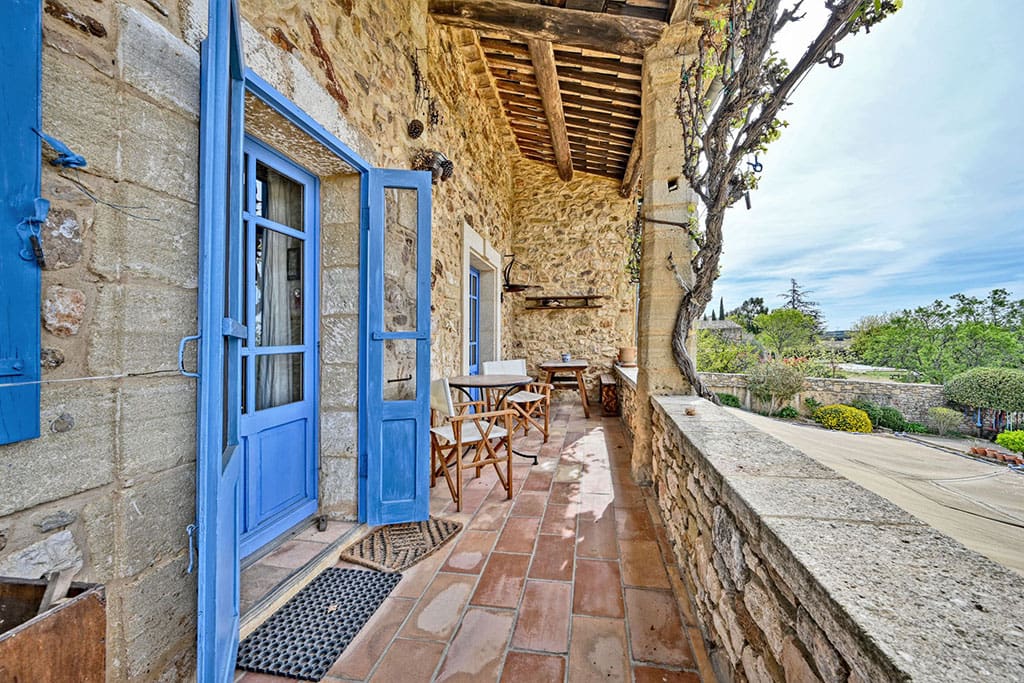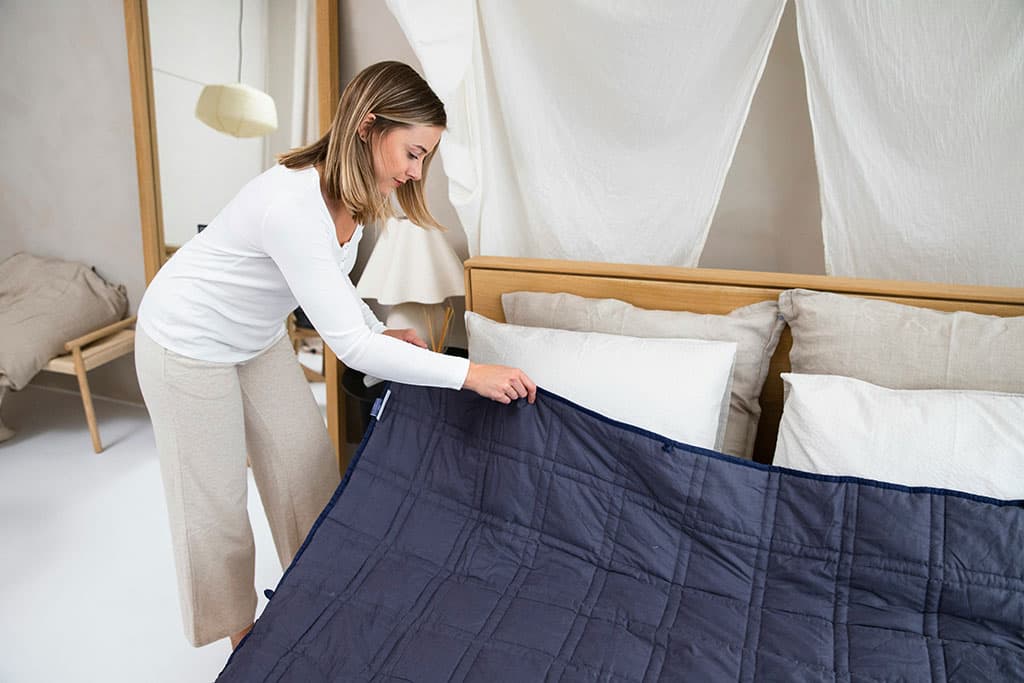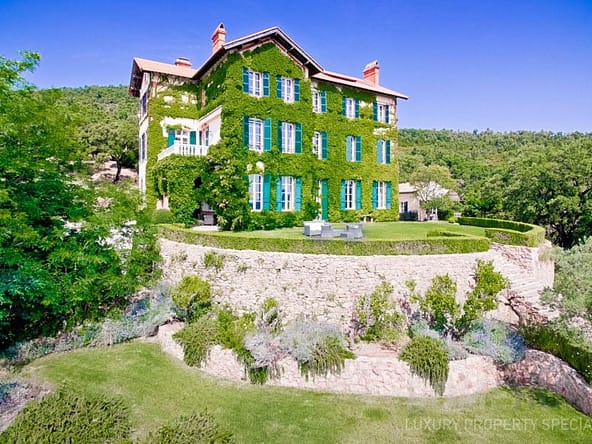Gite properties in France are fully furnished holiday homes that can be rented out by travelers. While the gite business had a modest start as mainly rustic shelters, today these properties are much more sophisticated and swanky.
From enchanting converted barns to luxurious country cottages, there are all sorts of French gite properties you can invest in. Since this is a business venture instead of a residential purchase, there are specific issues to take into account.
Table of Contents
How Do You Choose the Right Location for Your Gîte?
Whether you’re going to set up a gite business in the city, country, mountains, or at a seaside location, remember that most travelers and long-term renters will want easy access to activities and attractions. It’s best if your gite property is a walk or short cycling trip from restaurants, shopping, and other things to do.
The exception is if your gite business specifically caters to those seeking privacy and seclusion, which is why it pays to know your target audience before settling on a location.
There are gite and hotel businesses all over France. Some of the most sought-after locations include Carcassonne, Dardilly, Marseille, Narbonne, Toulouse, and Uzes, as there’s a lot of real estate space in these areas.
Commonly, luxury gite properties are in quiet, peaceful settings surrounded by nature. Swimming pools with private lounge areas and summer kitchens add to the appeal, and some properties may even have upgraded and attractive features like helipads or vineyards. Additionally, many properties will have space to offer catering services or host events.
Seasonal Considerations
France’s holiday season can span from mid-April to mid-September. July and August, when schools are closed for the summer, are likely to be your busiest times. During the winter, you may still be able to attract renters, but you may need to lower the costs for the off-season and consider extra expenses like heating.
That said, you can purposely choose locations that have stronger year-round potential or are busiest in the traditional off-season. For example, the French Riviera has mild temperatures all year round, and many of the towns there don’t slow down during the wintertime. French Alps property is most sought-after during the cold-weather seasons when skiing and other wintertime activities are at their peak.
What Are the Legal Requirements for Setting Up a Gîte in France?
There are a lot of legal requirements to understand and meet when setting up a gite in France. For example:
- The mairie, or town council, will need to approve your gite. Approval is usually based on how much tourism the area gets.
- A declaration will need to be filed that details information about the gite.
- When registering your gite, you’ll need to decide if you need a professional or non-professional registration.
- You may also want to officially classify the gite business, which can have tax advantages for you.
- If you need time to renovate the property and get the gite set up before running it as a business, you may want a long-stay visa to start with and then apply for a different type of residency once you’re ready to move forward with business plans.
Because opening a gite business in France is complicated, especially if you’re not a resident and don’t live in the country or speak fluent French, it’s best to work with real estate, legal, and tax professionals who can provide guidance through the entire process.
Considerations for Financing Your Gîte Business
Financing a gite property is not the same as buying a home in France. Instead of being able to get a regular mortgage from a French bank, you’ll need to apply for a professional business loan. You may also want to look for investors who can provide equity funding.
It can be difficult to make a living from your gite property, especially at first. It’s recommended that gite property owners have another income stream, at least in the beginning. Remember that it’s not uncommon for demand to fluctuate, not just from season to season but also from year to year.
Additionally, any rental income that you generate with your gite is taxable, even if you’re not a permanent resident.
Should You Buy a Turnkey Property or One That Needs Renovation Work?
For most people, the best and fastest option is to purchase a turnkey property, assuming you can find the features you’re looking for in the right location. On the other hand, if you have the expertise, time, and budget, you may opt to renovate the gite yourself.
Keep in mind that it’s still important to hire professionals to handle renovations you don’t have experience with, such as electrical wiring or pool installation. Also, if you decide against a turnkey property, you’ll need to learn the French rules and regulations for property renovation.
How To Market Your Gîte to Potential Guests
A cornerstone of effective marketing is highlighting your competitive advantage. French gites aren’t rare, so you’ll want to focus on your property’s unique selling points that make it a standout. For example:
- Heated pool or jacuzzi
- Private garden for reading or sunbathing
- Multiple buildings on an estate for large groups
- Outdoor amenities, such as games for kids or pool areas
- Amenities for long-term renters, like ample closet space or pantry storage
- Accessibility to the town centre
- Notable activities nearby, like gourmet dining or ski resorts
Once you know what to focus on in your marketing campaigns, you can choose the best platforms to get the word out. Online platforms like social media provide free or low-cost options for marketing. You’ll also want to build up a strong local presence by tapping into area tourism networks.
More Marketing Tips for Your Gite Business
- Accurately describe how the property will be once renovations are finished.
- Never be misleading – you’ll gain a bad reputation if you misrepresent your gite.
- Don’t skimp on photography or staging. It is often worth hiring a professional who can present your property in the best way possible.
- If you get a local government grant, you may be tied into advertising only in certain places – like on specific websites – for a certain amount of time before you’re allowed to advertise on your own.
A Note About Transparent Pricing
Not only should you post clear pricing on your website, but you should try to make pricing all-inclusive. Guests don’t expect to pay extra for amenities like linens or cleaning services. If you must offer add-on charges, make sure to be upfront about them.
What Are the Day-to-Day Management Considerations for a Gîte Owner?
When you’re running a gite business, every day can look different, and you have to be ready for anything that may pop up. Typical tasks include:
- Waking up early to prep amenities
- Pool care and maintenance of other outdoor areas
- Ensuring that guests have everything they need
- Purchasing fresh ingredients and taking dining orders
- Suggesting local activities and events for guests to partake in
- Washing and ironing to keep linens fresh
- Chatting with guests to provide the best customer service possible
- Booking new reservations and answering questions from potential customers
Additionally, gite owners have to be resourceful and willing to take on DIY projects to keep operations running smoothly and ensure customers stay happy. The goal of every gite owner is to give their visitors an excellent experience to promote repeat bookings and encourage them to leave positive reviews.
How Can You Expand Your Gîte Business?
Any savvy business owner knows that running a successful business means always thinking about how it can grow. There are a lot of ways to expand your gite business, such as:
- Add more properties so you can host more guests
- Offer additional services, like pet sitting or welcoming guests with gift sets
- Spread the world with locals who will recommend your gite to their connections abroad
- Invite travelers in the area to visit your gite for drinks or lunch
- Offer incentives for guests to return, like discounted rooms or complementary activities or excursions
It’s also helpful to look into eco-friendly practices for your gite business. Not only will you do your part for the environment, but travelers who care about sustainability will be drawn to your gite.
Final Thoughts on How to Setup a Gite Business in France
Setting up a successful gite business in France is an ongoing job. Finding an excellent location and deciding on the type of property you want to invest in is only the start. Getting the gite up to your standards, ensuring that you’ve followed legal requirements for running a business in France, and financing your gite can take several months to finish.
Once the business is up and running, you have to be prepared to handle day-to-day activities for the sake of creating a stellar customer experience. Prospective gite owners who are up for the challenge will reap the rewards of this exciting business venture.
If you’re looking to invest in a gite business in France, search our extensive online property portfolio or call us to speak directly to one of our property consultants.






